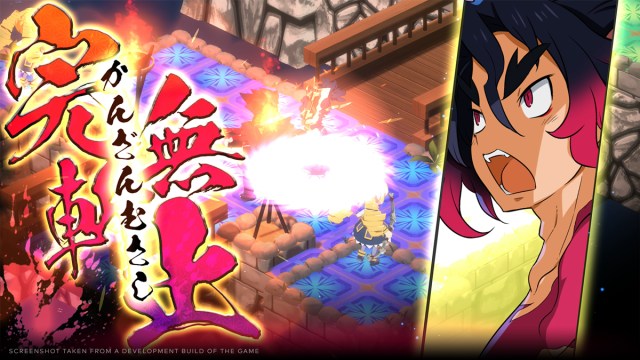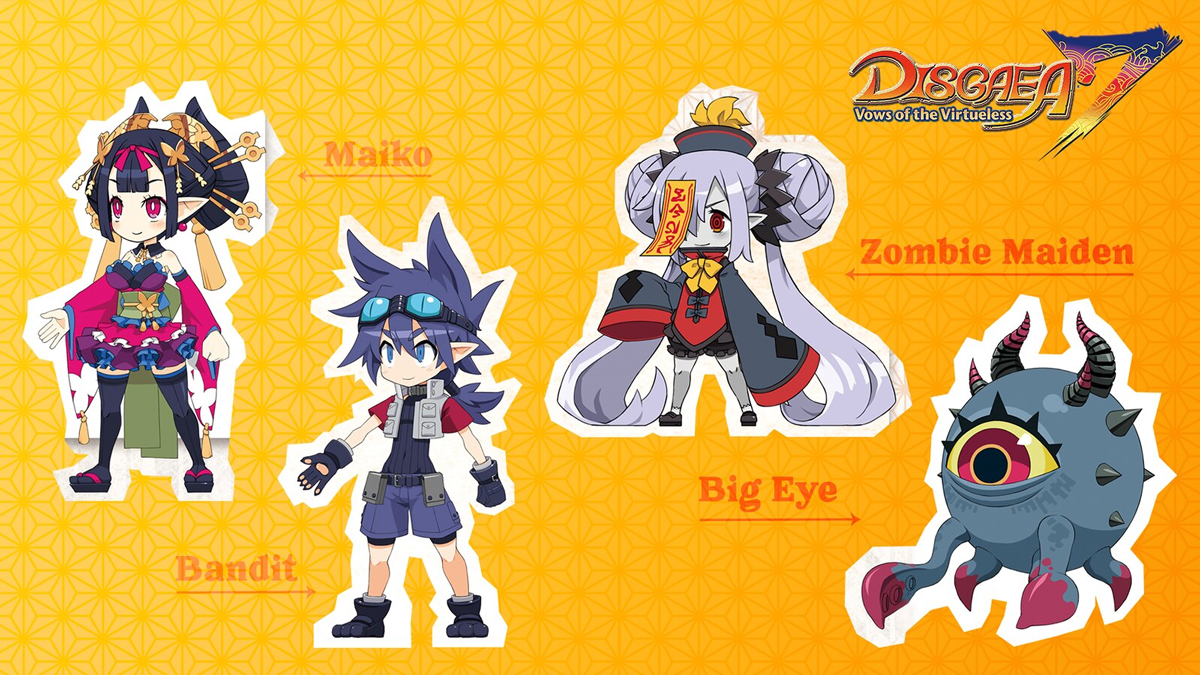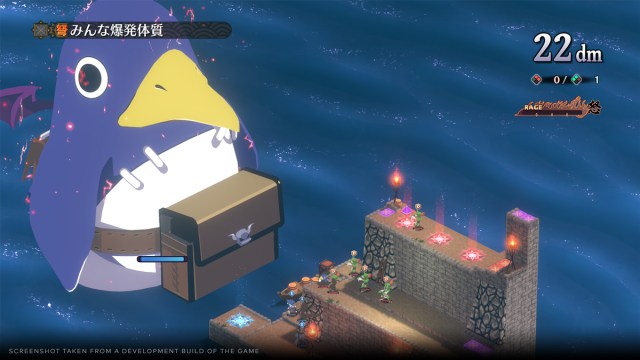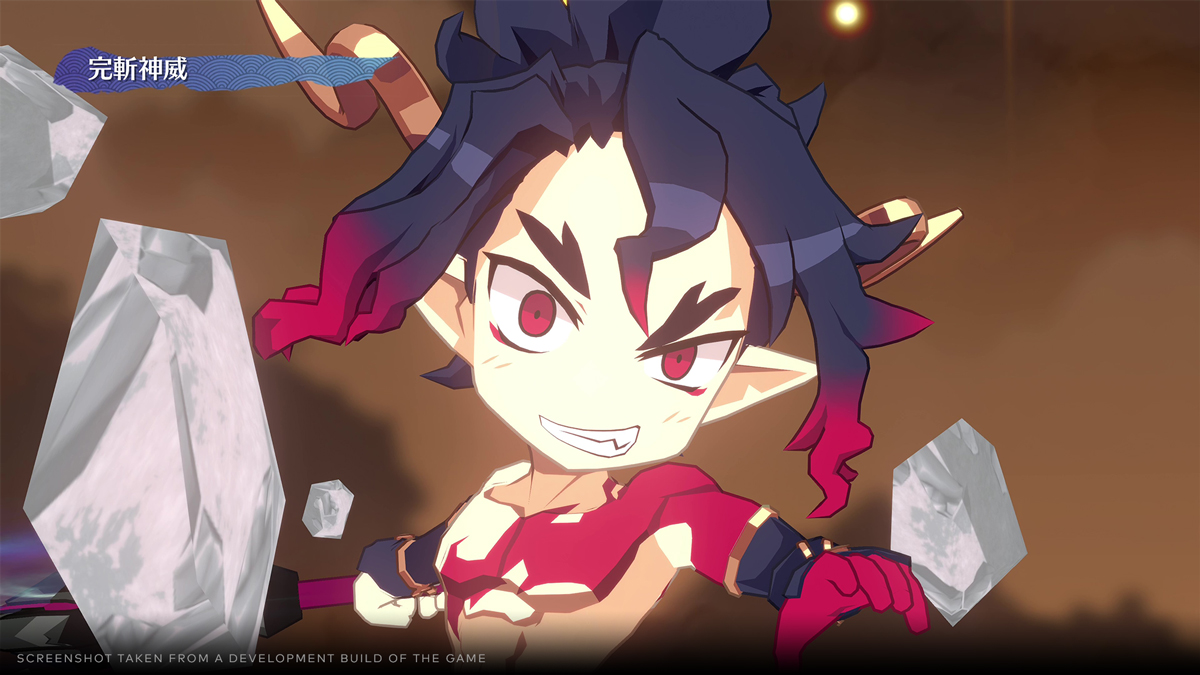An interview with Shunsuke Minowa
Two-thousand and three was an absolute banger of a year for the video game industry. In that 12-month span, players got their hands on some absolute classics of the medium. Games like Max Payne 2: The Fall of Max Payne, Tony Hawk’s Underground, Star Wars: Knights of the Old Republic, Beyond Good & Evil, Warcraft III, and Prince of Persia: The Sands of Time, to name a few. Several franchises that are still going strong today got their start that year. Franchises like Disgaea. Arguably the first title people think of when they think of Nippon Ichi Software, Inc., Disgaea: Hour of Darkness landed on the PlayStation 2 in Japan in January 2003 and in North America that August. It had the unfortunate timing of launching the same day as Soulcalibur 2 and less than two weeks before Final Fantasy Tactics Advance in North America.
Both titles would ultimately suck all the air out of the room, but Hour of Darkness managed to strike a chord with players. IGN named it the “Best Game No One Played” during its yearly awards. And while it wasn’t the first title Nippon Ichi Software, Inc. released in the West, it was the first to establish the developer as a niche favorite outside of Japan. Disgaea: Hour of Darkness helped the company get its foot in the door. At the end of 2003, it established NIS America. It would no longer rely on established publishers to localize its games. NIS America would quickly become one of the most frequent publishers of AA and single-A games from small Japanese developers. Some titles were more successful than others, but the company’s crown jewel would always be the Disgaea series. With each release garnering solid reviews, it seemed like there was no stopping Nippon Ichi Software, Inc. or its prized IP.
But the company’s luck to a turn for the worse in 2019. That year, it released Disgaea RPG for mobile devices. The launch was anything but successful. On its first day, the game went into emergency maintenance mode. The maintenance nightmare ended up lasting months before the game was officially relaunched that November. A worldwide version wouldn’t hit app stores until 2021. The global version shut down for good earlier this month.
In 2021, Nippon Ichi Software, Inc. and NIS America released Disgaea 6: Defiance of Destiny. Like with Disgaea RPG, its debut didn’t live up to expectations. Reviews were muddled, an anomaly for a mainline entry in the franchise. The reception of that game was something Shunsuke Minowa, director of Disgaea 7: Vows of the Virtueless, didn’t shy away from in an interview with Destructoid.
“Disgaea 6 had two distinctions in that it was the first 3D game [of the series] and had fewer systems than previous entries to allow it to be a good starting point for new players,” he said. “The end result received mixed reception upon release. Due to this, we wanted to quickly get Disgaea 7 into players’ hands and create a game that we knew they would love.”
Minowa has the difficult task of righting the ship of the Disgaea series. A long-time Nippon Ichi Software, Inc. employee, Vows of the Virtueless marks his first time directing a Disgaea game after previously working as a programmer on Disgaea 5. Less than six months after the release of Disgaea 6 in Japan, development on its sequel started. It was a fast turnaround for the developer. While previous Disgaea games were released steadily every two to three years, there was a nearly six-year gap between the fifth and sixth entries in the series. At the start of development, Minowa and his team focused on player feedback from D6.
“With Disgaea 6, we tried various things to simplify existing systems in order to let new players acclimate themselves more easily,” he said. “One of those was the auto-battle feature. In a sense, we did accomplish this goal with this feature, however this feature removed one of the main joys of the series, which is actually playing through the stages. Through this, we lost a key aspect of Disgaea.”
He continued, “We had already started development from around June of 2021 and took into account all player feedback from Disgaea 6, including topics like the amount of generic character classes, the reimplementing weapon skills, and whether to remove auto-battle or find a way to improve it. What we learned from Disgaea 6’s feedback is that we should never remove elements from the series that make Disgaea what it is. We used these things as a base and aimed to create a “back to basics” title that was appropriate for the series’ 20th anniversary.”

This “back to basics” approach is at the heart of the story of Disgaea 7. Players can expect a largely scaled-back adventure when compared to the previous two titles. Disgaea 5 and 6 featured various Netherworlds in their narratives, but the decision was made at the beginning of development to just focus on one for Vows of the Virtueless, the Netherworld of Hinomoto.
As Minowa explained, “When we started to come up with what that setting would be, we looked over all of the different generic class characters and noticed that one referenced the word ‘Bushido.’ We thought about what that meant and how it could be the base for an interesting setting. After that we realized that this setting would work well with our goal of going back to basics, so we thought of a storyline of ‘reclaiming Bushido’ and that turned into the setting of a ‘historical Japanese-inspired Netherworld without Bushido.’”
Though the focus on a single Netherworld might feel like pared-down ambition, Shunsuke and his team are breaking new ground with the series and its protagonists Fuji and Pirilika. A lot of the pre-release advertising for the game has focused on the character Fuji, so much so that you might think he’s the main character. But that’s not the case.
“In the beginning stages of Disgaea 7, and for the first time in series’ history, the female lead Pirilika drives the plot and Fuji is there as a support character. However, Fuji also has his own motivations and as the plot progresses, each of their stories begin to interweave. This is one of the special points of Disgaea 7’s story.”

Minowa said the two characters were not looked at as “protagonist” and “heroine,” but rather as equal partners who are there to support each other through what should be a comedic and occasionally bonkers adventure. Of course, the two heroes of the tale will not be alone. There are at least seven featured characters in Vows of the Virtueless and 45 generic character classes, which is a massive step up from its predecessor. Four of these character classes are new, including Maiko, who is effective against male enemies, Bandit, who can help locate treasure and rare items, Zombie Maiden, who gets more powerful as allies die, and Big Eye, a demon held in high regard by other demons.
“Of the new characters, I particularly like the Big Eye as it is a character type that has not been in previous Disgaeas. It is also a large monster type but maintains a good visual balance, so I’m very satisfied overall with how it turned out.”
Minowa said he also has an affinity for Maiko and hopes players will build her up for end-game runs. If you’re the type of player who keeps on grinding long after the final villain is no more, the new Item Reincarnation feature is bound to eat up a lot of your time. Minowa describes this as one of the core systems for Disgaea 7 and is essentially a powered-up version of the series-staple Item World.
“In the Disgaea series, if you equip hand weapons, the character’s ability to counterattack is increased, if you equip shoes, their movement range is increased, so each item has its own characteristics. With Item Reincarnation, once you are finished powering up the item in the Item World, you can use Item Reincarnation to further augment its strengths and randomly have rare abilities carried over. In this way, items can be made even more powerful.”

Item Reincarnation isn’t the only way to gain an advantage on the battlefield. A new addition to Disgaea 7 is Jumbification, which basically turns a character or enemy into a kaiju. Characters undergoing Jumbification can attack anywhere on the field of battle, and each character has a unique ability for this mode that affects the entire field. As a lifelong kaiju fan, this is obviously the feature I’m most excited about.
Whether or not Disgaea 7 is able to correct the course for the series remains to be seen. The game was released in Japan this past January, less than two years after Disgaea 6 dropped in the country, selling 50,000 copies within a few days and scoring 8’s across the board from the reviewers at Famitsu. I’ve read a few Reddit posts from English-speaking players who’ve got their hands on the game, praising the changes the developers made. If this does restore the Disgaea name, it’ll be quite an accomplishment for Minowa and his team given how quickly they put this thing together.
Disgaea 7: Vows of the Virtueless releases on October 3 in North America and October 6 in Europe on Nintendo Switch, PC, PS4, and PS5.








